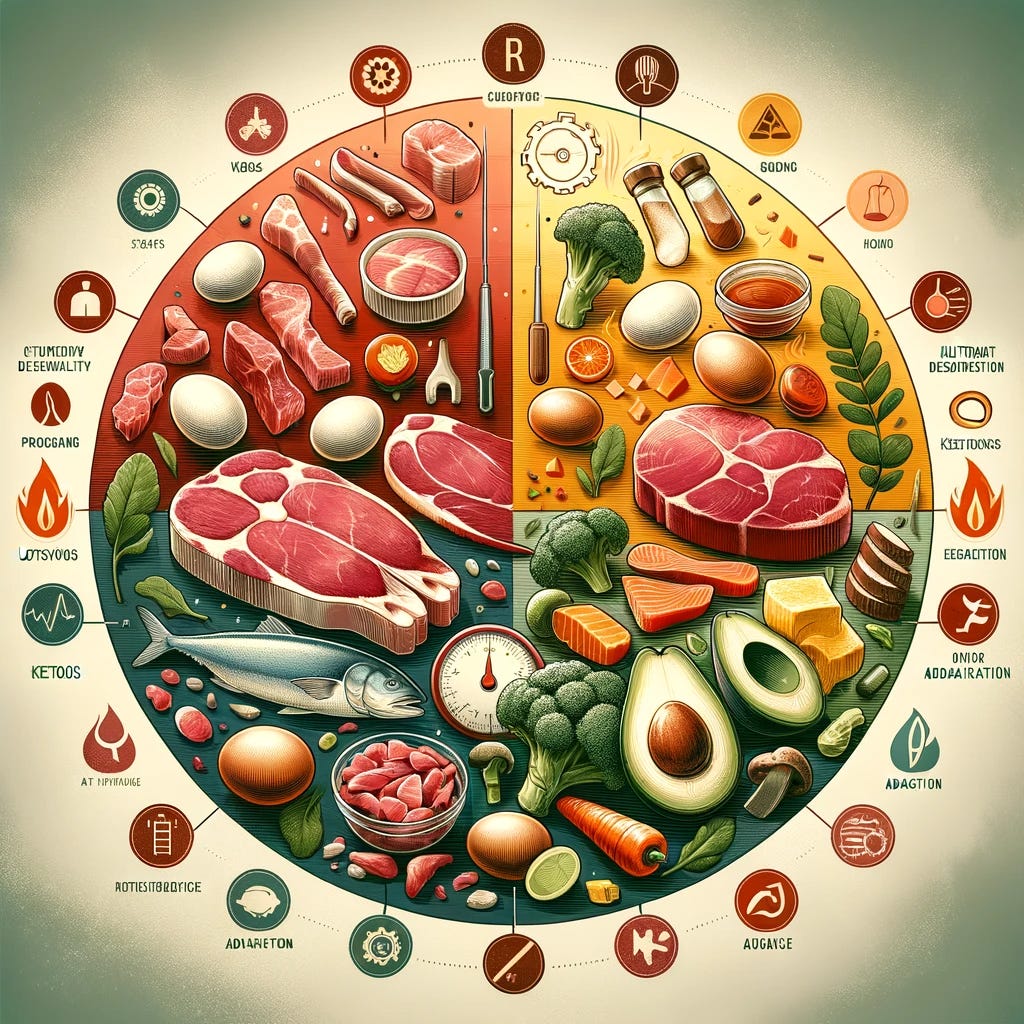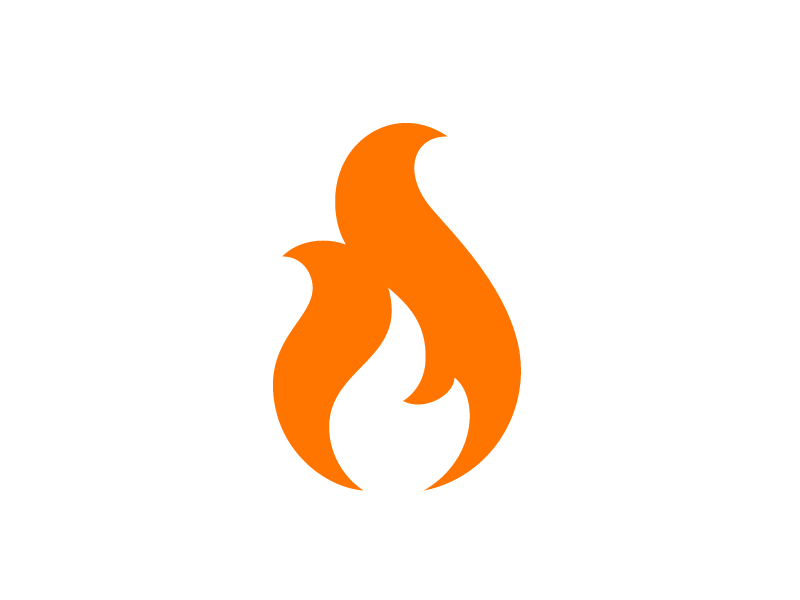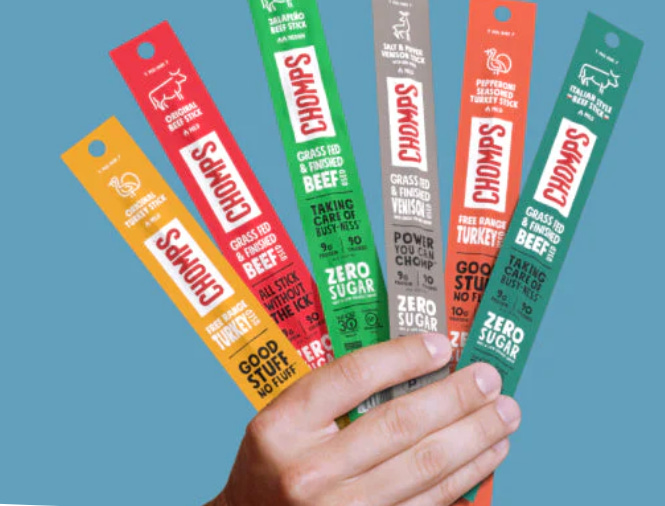Glossary of terms for Carnivore and Ketovore Ways of Eating
Embarking on a new way of eating (woe) journey to heal yourself can be both exciting and overwhelming. To help you navigate the world of carnivore and ketovore woe, I've compiled a glossary of essential terms you'll encounter along the way. I am sure there are more, but this gives you a good start!
Carnivore WOE
Definition: A diet that consists almost entirely of animal products – meat, fish, eggs, and certain dairy products. It excludes plant-based foods.
Ketovore WOE
Definition: A hybrid diet combining elements of ketogenic and carnivore diets. It primarily focuses on animal-based foods but includes limited plant-based foods that are low in carbohydrates.
Lion WOE
Definition: The Lion Diet is an extremely restrictive version of the carnivore diet. It focuses primarily on consuming ruminant meat (beef, lamb, goat), water, and occasionally salt.
Ketosis
Definition: A metabolic state in which your body uses fat, rather than carbohydrates, as its main source of energy. This is a key goal in both ketogenic and ketovore diets.
Macronutrients
Definition: The three main categories of nutrients used to provide energy: carbohydrates, fats, and proteins. In carnivore and ketovore diets, the focus is on increasing protein and fat intake while minimizing carbohydrates.
Zero-Carb
Definition: A term often associated with the carnivore diet, implying a diet free of carbohydrates. However, it's a bit of a misnomer as some animal products do contain small amounts of carbohydrates.
Intermittent Fasting
Definition: An eating pattern that cycles between periods of fasting and eating. Many following carnivore and ketovore diets find intermittent fasting naturally happens as their hunger cues change.
Autophagy
Definition: A natural process of cellular cleanup and recycling, which may be boosted by practices like intermittent fasting and low-carb diets like carnivore and ketovore.
Grass-Fed and Grass-Finished
Definition: Refers to animals that have been fed only grass and forage for their entire lives. Many proponents of the carnivore diet prefer grass-fed and finished meats due to their higher nutrient content and ethical farming practices.
Electrolyte Balance
Definition: The balance of minerals in your body essential for its function. Important electrolytes include sodium, potassium, and magnesium. Managing electrolyte balance is crucial when starting a low-carb diet, as initial fluid loss can disrupt this balance.
Fat Adaptation
Definition: The process by which your body becomes efficient at burning fat for fuel instead of carbohydrates. This adaptation is key for those following a ketovore diet.
Animal-based vs. Plant-based
Definition: Animal-based diets focus on foods derived from animals, while plant-based diets focus on foods derived from plants. The carnivore diet is exclusively animal-based, while the ketovore diet is predominantly animal-based with some plant inclusion.
Nutrient Density
Definition: A measure of the nutrients a food contains in relation to its calorie content. Animal products are typically high in nutrient density, providing essential vitamins and minerals in concentrated forms.
Glycemic Index (GI)
Definition: A value assigned to foods based on how slowly or quickly they cause increases in blood glucose levels. While not a primary concern in carnivore diets, it is more relevant in ketovore diets where some low-GI plant foods may be included.
Collagen
Definition: A protein found in animal connective tissues. It’s valued in carnivore and ketovore diets for its potential benefits for skin, joint health, and overall protein intake.
Organ Meats (Offal)
Definition: Edible parts of an animal that are not skeletal muscle, such as liver, heart, and kidneys. These are highly nutritious and are often encouraged in carnivore diets for their high vitamin and mineral content.
MCT Oil (Medium Chain Triglycerides)
Definition: A supplement often used in ketogenic diets, derived from coconut oil. MCT oil is easily converted into ketones, substances produced when the body burns fat for energy.
Omega-3 and Omega-6 Fatty Acids
Definition: Essential fatty acids found in high concentrations in certain animal foods, especially fish. The balance of these fatty acids is considered important for reducing inflammation and promoting overall health.
Grass-Fed Butter
Definition: Butter made from the milk of grass-fed cows. It's a preferred fat source in both carnivore and ketovore diets due to its higher content of vitamins and healthy fats.
Bone Broth
Definition: A nutritious broth made by simmering animal bones and connective tissue. It’s a popular food in both diets for its collagen content and electrolytes.
Net Carbs
Definition: The total carbohydrates in a food minus its fiber content. This concept is more relevant to the ketovore diet, where keeping track of net carb intake helps maintain ketosis.
Animal Welfare and Sustainability
Definition: Considerations about the ethical treatment of animals and the environmental impact of animal farming. Many adherents of these diets seek sustainably sourced and ethically raised animal products.
There’s a lot of terminology to learn when you decide to take your health seriously. I hope these were helpful. Let me know!
Share the Flame
Renata
Get Chomps with a 15% Discount. I love these for a quick snack. Especially when I am traveling, which I do a lot for my work. The problem with traveling is that it’s hard to know what people have cooked the food in or the quality of the food. So, when I’m hungry and in a hurry I eat Chomps to keep me on track and out of stupid decisions. The 15% discount code is MORETHANCARNIVORE.





Thanks for the list of definitions!